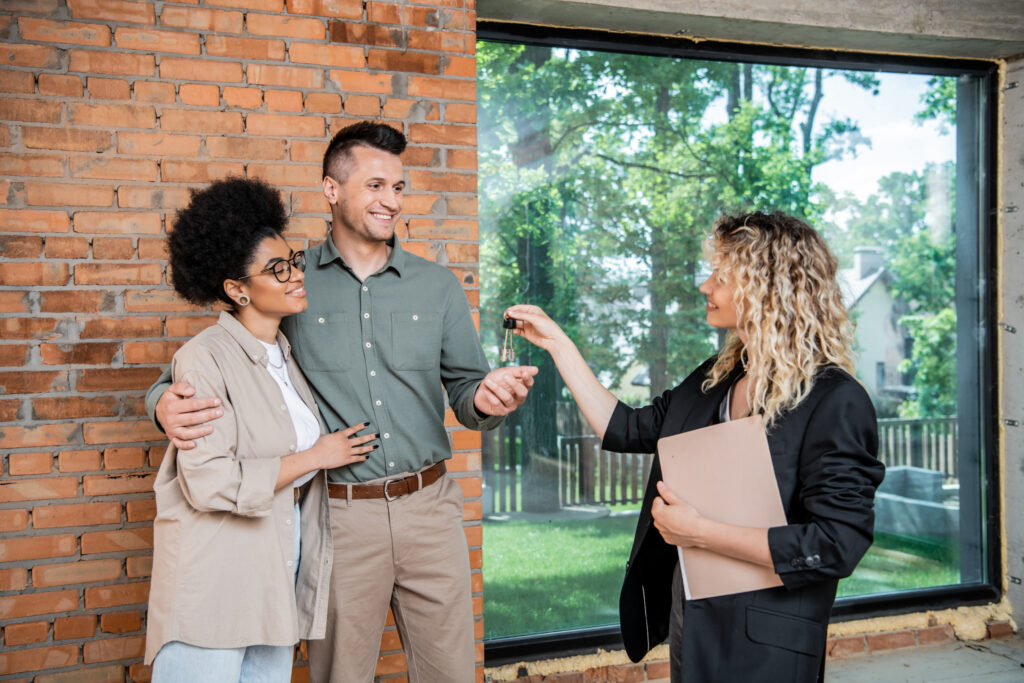Introduction
How to Become a Real Estate Agent with No Experience ? Real estate can be an exciting and profitable career that draws in many individuals; yet for someone just beginning, the path can seem intimidatingly long and complex. In truth though, no years of experience or extensive networking are needed; just guidance, determination and practical steps. You could soon become one of the stars in real estate!
This guide will outline step-by-step the process to becoming a real estate agent with no experience, using Problem-Agitation-Solution (PAS) framework as your roadmap towards success. Understanding obstacles may seem challenging at first, so here we provide clear steps on overcoming challenges to succeed as real estate agent!

The Problem: How to Become a Real Estate Agent with No Experience
1. Lack of Experience
- Most new real estate agents start off without much prior experience in real estate sales or acquisition.
- Fumbling around aimlessly without knowing where or how to start can create hesitation and self-doubt, leading to feeling helpless in taking any step towards personal or professional progress.
- Many individuals worry that they won’t be able to compete effectively against more seasoned professionals in the marketplace.
2. No Established Network
- Real estate is an industry built on people, so having an effective network in place is vitally important.
- Without established connections, it may feel as if you’re operating alone.
- Building relationships with clients, real estate professionals, and mentors can be daunting without an outline or starting point.
3. Unfamiliar with Real Estate Laws and Processes
- Real estate transactions involve complex legal processes, contracts, and negotiations.
- Uncertainty surrounding such complex procedures may be daunting and confusing, leading to confusion and increased stress levels.
- Feeling overwhelmed and confused about the legal obligations that accompany being an agent? It could be daunting at times! Here is some help on figuring out your responsibilities as an agent.
4. Overwhelming Competition
- Real estate industry competition can be fierce.
- Established agents often have access to more resources, making it seem impossible for new agents to make inroads into the marketplace.
- Without experience, it can be easy to feel you won’t make an impactful statement in an interview setting. But once your knowledge base and skills increase significantly, standing out becomes far less daunting of an undertaking.
Agitation: How to Become a Real Estate Agent with No Experience
Fear of Failure
- One of the main barriers to becoming a real estate agent lies within our fear of failure.
- Beginning a business can be daunting and discouraging; thoughts like, ‘What if I fail?” and “Will there ever be clients for my services?” can easily creep in and give one reason after the next for not moving forward with their venture.
- To combat such fears and prevent failure from hindering progress it’s essential that entrepreneurs take time out for self-improvement each month to ensure success is met and any fears about success addressed properly by taking proactive measures and planning accordingly.
Financial Uncertainty
- Real estate agents work on commission, meaning there’s no guaranteed pay check each month.
- Fearing for your financial wellbeing could prevent you from taking that necessary first step forward.
- Financial uncertainty can prevent some potential agents from starting.
How to Become a Real Estate Agent with No Experience?I remember when I first considered entering real estate; my fear was of financial failure and uncertainty was something which caused much consternation within. After taking time and careful thought on this decision though, it has proven its rewards can outstrip its risks considerably.
Self-Doubt How to Become a Real Estate Agent with No Experience?
- As an amateur in your new career field, it can be easy to question your abilities. But this should never become an excuse!
- “I don’t know enough” or “I can’t compete with experienced agents” can become your greatest hindrance to success in real estate investing.
Lack of Guidance
- Navigating this new process on your own can feel intimidating and lonely, which makes the entire experience all the more daunting. Without guidance or assistance to guide and support the way, this journey may become unmanageable and potentially daunting.
- People often give up because they do not know where to turn for advice and support.

The process of learning how the skills required to be a successful estate agent without prior expertise is equally thrilling and daunting. Learn about the market in your area and get a better understanding of the licensing requirements in the state in which you are located.
After that, you should take a course for pre-licensing to acquire the fundamental knowledge of real estate concepts as well as the laws, regulations, and practices. Once you have passed the exam for licensing, look into finding someone to mentor you or joining a brokerage offering training and assistance for new agents. Networking is essential.
It’s important to go to local gatherings related to real estate and connect with professionals in the field. Utilize the internet for continuing your education as well as remain up-to-date on the latest trends and developments in the industry. If you focus on the goals that you want to achieve and pursue a method of action, you can become a professional by becoming an experienced real estate agent.
The Solution: Step-by-Step Guide to Becoming a Real Estate Agent with No Experience
Step 1: Understand the Licensing Requirements
- Real estate agents need a license in order to operate legally.
- Consider your state or country’s licensing requirements carefully as these can differ based on where you live.
- Typically, to become eligible to ride your bicycle on public roadways you should:* At least be 18 or 19 years old depending upon where your home address lies
- Complete an established minimum number of pre-licensing education hours (usually 60-120).
- Pass a real estate licensing exam.
- Submit an application and fees to your state’s real estate board.
As I applied for my real estate license, the process proved easier than anticipated. While taking courses was time consuming and required dedication from me personally, once completed they made me more self-assured; and taking my licensing exam wasn’t nearly as intimidating.
Step 2: Enroll in a Real Estate Pre-Licensing Course
- Enroll in an appropriate pre-licensing course either online or face-to-face.
- This course will explore key real estate topics like laws, ethics, property management contracts and negotiations.
- Course duration typically ranges between two and eight weeks depending on your program and schedule.
Step 3: Pass the Real Estate Licensing Exam
- This exam will assess your knowledge of real estate laws, practices and principles.
- Online practice tests and pre-licensing courses often provide exam prep.
- Study regularly and concentrate on understanding key concepts rather than memorization of facts.
Step 4: Choose a Real Estate Brokerage
- Once you’ve passed your exam, the next step will be selecting an agency from which to work.
- Investigate brokerages near you and enquire about their training programs for new agents.
- Look for brokerages that provide mentorship, guidance and assistance.
Once I passed my licensing exam, selecting an optimal brokerage was key to my rapid advancement as an agent. One with an outstanding mentorship program provided exactly the support I required as an apprentice broker – making all the difference for my success!
Step 5: Build a Strong Personal Brand
- Personal branding refers to how you present yourself to potential clients and colleagues.
- Focus on professionalism, authenticity and trustworthiness when building relationships.
- Create a basic website and activate social media profiles in order to demonstrate your expertise.
- Your brand doesn’t need to be flawless from day one; as your experience increases, so will its appearance.
Step 6: Start Networking
- Join local real estate groups, visit open houses, and participate in community events.
- Reach out to other agents and professionals working in related areas such as mortgage brokers or appraisers.
- Building relationships with industry experts and potential clients will enable your business to expand quickly.
My greatest achievements came through participating in networking events. Through creating relationships with local professionals, I formed referrals and partnerships that ultimately enabled me to close my first deals successfully.
Step 7: Focus on Learning and Growth
- Real estate offers continuous learning.
- Take advantage of training programs, workshops and online courses available today.
- Gain knowledge about market trends, pricing strategies and marketing techniques.
- Knowledge leads to confidence when working with clients.
Step 8: Start Gaining Experience
- Even without direct experience, you can begin helping experienced agents.
- Offer to assist with open houses, administrative duties or client research.
- Join a real estate event as a volunteer or join one of its teams as a real estate team member.
- Doing this will enable you to build skills and gain insight into the day-to-day operations of real estate.

Overcoming Challenges: Key Tactics for Success
Stay Consistent
- Success in real estate takes time and dedication.
- Don’t get discouraged by an initially slow start. Keep working at it – even if it seems slow!
- Focus on building relationships, learning new things and staying active within your industry.
At times during my first year as an independent agent, there were moments where I questioned my decision. Though clients came slower than expected, consistency proved vital – ultimately paying dividends later down the road.
Develop a Routine
- Set daily goals such as calling leads or attending open houses and following up with clients.
- Establishing and following an effective routine helps keep you focused and organized.
- Small daily actions add up over time and produce noticeable outcomes.
Use Technology to Your Advantage
- Real estate technology tools can make life simpler, saving both time and energy.
- Use customer relationship management (CRM) software to monitor leads and coordinate client interactions.
- Utilize digital marketing tools, like email automation and social media scheduling, to reach a broader target market.
Build Your Client List
- Start building your client list by offering to assist friends, family, and acquaintances locate or sell homes.
- Drive referrals with exceptional service.
- Word-of-mouth advertising can be one of the most effective marketing techniques used in real estate.
Invest in Your Education
- Take continuing education courses to stay abreast of industry developments.
- Improve your knowledge about local real estate markets, pricing strategies and regulations.
- Your knowledge allows you to add greater value for clients.
Embrace Failure as a Learning Opportunity
- Real estate transactions don’t always close successfully and that is okay.
- Use setbacks as opportunities to refine and strengthen your strategies.
- Resilience is one of the defining characteristics of successful agents.
Early on, my deals didn’t close for various reasons and this made me very angry; but then I quickly came to understand that every failure taught me something valuable and enabled me to refine my approach and become better at what I do.

Conclusion: Zero to Hero—You Can Make It!
Becoming a real estate agent without experience takes hard work, dedication and an eagerness to learn. Don’t allow fear of inexperience stop you – simply follow these steps as outlined here and keep focused on reaching your goals while welcoming any challenges along your journey.
Your dedication to learning, relationships building and skills development will set you apart in today’s highly competitive real estate market. Navigating this path may not always be simple or effortless but with proper mindset and actions taken it is entirely achievable.
FAQs:
How long does it take to become a real estate agent?
On average, licensing takes anywhere between three to six months depending on your state and course selection.
Can I start real estate part-time?
Yes, many real estate agents begin real estate part-time to build skills and networks without feeling pressure to commit full time to it.
What are the costs involved in becoming a real estate agent?
Costs associated with becoming licensed may include pre-licensing courses, exam fees and licensing costs as well as membership in real estate boards; together these costs could amount to between $1500-2 000.
Do I need a college degree to be a real estate agent?
No college degree is essential; however, education in related areas could prove invaluable.
How do I find a real estate mentor?
Attend local real estate events and groups and express an interest in learning more – many experienced agents are often willing to mentor newcomers in this regard.
What is the best way to find clients when starting out?
Start with your personal network, then leverage social media platforms such as LinkedIn to expand it further by reaching out to potential clients. Active participation in your local community also adds great value.
Is real estate a good career in a down market?
Yes, opportunities exist regardless of market conditions; all it takes is adapting strategies accordingly – for instance focusing on rentals or distressed properties when sales lag behind.
How important is social media for a new real estate agent?
Marketing your brand effectively can build your credibility among clients while demonstrating market knowledge.
Can I work independently without joining a brokerage?
Most states mandate that new agents work under an established brokerage for some period before becoming independent agents.
What’s the most effective way to learn real estate laws and regulations?
Pre licensing courses, continuous education courses and keeping abreast of real estate publications and websites.


